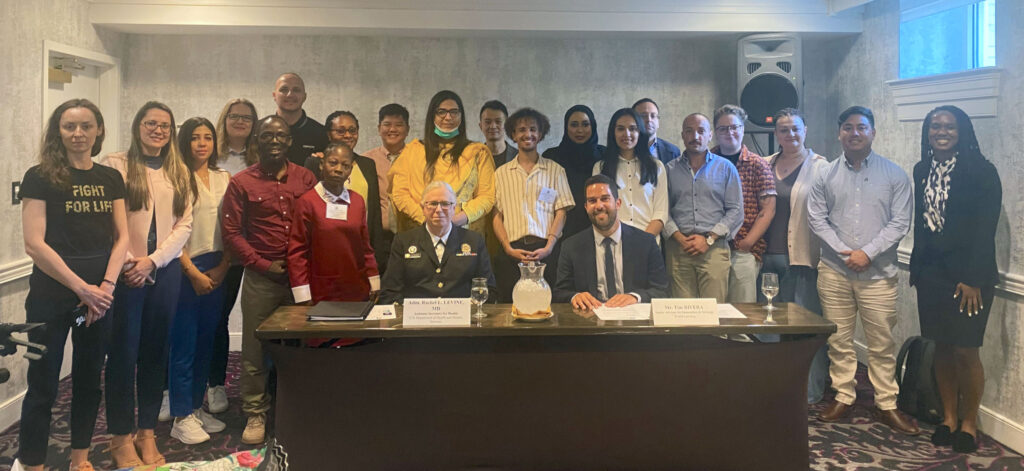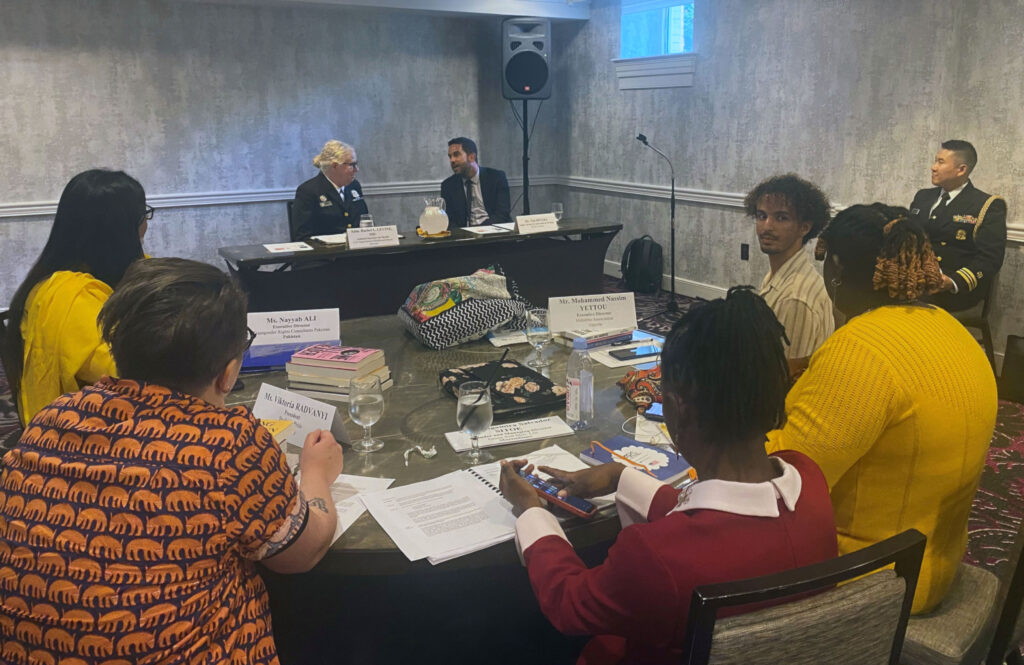-
What We Do
- WHERE WE WORK
-
About Us
 Welcome Message from Carol Jenkins
Welcome Message from Carol JenkinsFor more than 90 years, World Learning has equipped individuals and institutions to address the world’s most pressing problems. We believe that, working together with our partners, we can change this world for the better.
On my travels, I’ve had the opportunity to meet with many of those who have joined us in this mission. In Baghdad, we’ve trained more than 2,300 Iraqi youth who are already giving back at home. In London, our partners in the TAAP Initiative strongly believe that we are all responsible to practice inclusion. And in Vermont, our Experiment in International Living and School for International Training participants prove every day that they have the tools and the determination to change the world.
Please join us in our pursuit of a more peaceful and just world.
- Get Involved
Media Center > Story
Barriers to healthcare are focus of meeting with U.S. Assistant Secretary for Health
August 3, 2023
By Abby Henson

An international group of nonprofit leaders, human rights advocates, and activists met recently with Admiral Rachel Levine, Assistant Secretary for Health for the U.S. Department of Health and Human Services, to discuss barriers faced by many populations — including people of color, Indigenous peoples, Latinos, and the LGBTQI+ community — when accessing health care.
The group, part of the International Visitor Leadership Program (IVLP) implemented by World Learning and funded by the U.S. Department of State, included professionals from Africa, Asia, Europe, and South and Central America. Of the 21 participants, ten work in the LGBTQI+ rights space.
“Overall, it was important to have a person at her level interact with participants on issues of human and civil rights for marginalized communities since access to health services remains a huge hurdle among marginalized groups.”
ADM Levine is a pediatrician and a professor of pediatrics and psychiatry, and her career has focused on the intersection between mental and physical health for children and adolescents. In 2021, she was commissioned as a four-star admiral in the U.S. Public Health Service Commissioned Corps, becoming the first openly transgender four-star officer in any of the United States uniformed services.
“It is important that she pledged to support efforts to ensure that LGBTQ persons receive the much-needed specialized medical treatment including navigating the unfavorable legal regimes in countries like Uganda and other jurisdictions where LGBTIQ+ status and conduct are criminalized,” said Edward Ssemambo, program director for the Human Rights Awareness and Promotion Forum in Uganda.
The IVLP cohort was on a three-week program, themed Human and Civil Rights for Marginalized Communities, which explored topics such as the U.S. Civil Rights Movement, homelessness, refugee resettlement, criminal justice, police reform, and poverty along with access to healthcare. They met with human rights leaders, government officials, professors, policymakers, and heads of nonprofits throughout the country.
“Overall, it was important to have a person at her level interact with participants on issues of human and civil rights for marginalized communities since access to health services remains a huge hurdle among marginalized groups,” said Ssemambo.

The three-week program aimed to bring the international participants and their American counterparts together to share best practices on preventing human rights violations against members of marginalized communities, building local capacity to document abuses, reforming discriminatory laws and policies, and planning education campaigns to promote tolerance and inclusion.
“The programming for this IVLP tour was carefully designed to explore a range of human rights areas so participants can share best practices and foster networks with other professionals specific to their expertise,” said Laurence Sevier, senior program officer of World Learning. “This professional tour, like all IVLP projects, also aimed to show both the strengths and weaknesses of our systems in the U.S. on all levels in a spirit of collaborative knowledge-sharing.”
Overall, the IVLP brings thousands of visitors to the U.S. every year for short-term professional exchanges on topics ranging from women and entrepreneurship and combating human trafficking to global pandemic collaboration and wildlife conservation. The primary goal of the program is to foster lasting relationships and help strengthen U.S. engagement with countries around the world. As one of eight National Program Agencies, World Learning partners with the U.S. Department of State to design and implement programs for more than 800 current and emerging leaders from more than 140 countries each year.





